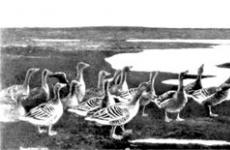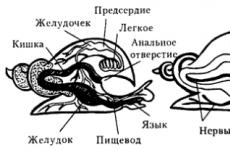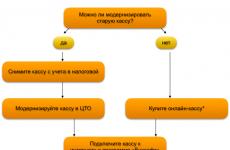Sports nutrition in fasting. Fasting sports nutrition Fasting sports nutrition
Everything created by nature is harmonious and balanced. And only man is often prone to exaggeration. Peering and listening to natural creations and processes, trying to learn from higher powers the ability to maintain balance is the only way to maintain health and spiritual purity.
Harm or benefit?
When deciding to observe Great Lent, we often think about whether it will harm our body? After all, for a long time we receive less vitamins, minerals, proteins, fats, and this can weaken us. And if you consider that most of us work and go to gyms? Abstinence traditions during fasting exist in all religions of the world and the experience that humanity has accumulated is unique. During fasting, the body and soul are cleansed, because it is not in vain that during this period people do not quarrel, do not have fun, dress modestly.
Read more
Going to gyms and fitness clubs can be approached from different perspectives. Loud music that accompanies training does not fit into the canons and rules of fasting. In addition, heavy physical exertion during a modest diet can weaken the body and undermine health.
The opinion of nutritionists
Deep is the conviction of modern nutritionists that fasting is extremely beneficial for a person. Seven weeks of Lent, during which we do not eat fatty foods, prepares us for the summer way of eating - "grass eating". By the end of the fast, our body is completely cleansed and absorbs vitamin products, digesting them perfectly. In ancient times, fasting was much stricter, and it was allowed to eat only vegetables with fruits and bread once a day late in the evening.
It is clear that with such strict rules and physical loads should be moderate. The first two days of Lent, after oil pancakes with caviar and cottage cheese, it was allowed to drink only one water - the body launched a purification mechanism. Going to training on days when you eat nothing but water, you increase stress many times over. Therefore, in the first days of Lent, it is better to cancel training altogether.
In addition, nutritionists recommend that people who continue to exercise during fasting still eat lean food three to four times a day, eating once a day in the evening will greatly unbalance the body. It is necessary to significantly reduce the load during fasting, you get less fast carbohydrates and fats - and with strong physical exertion, this is fraught with loss of consciousness or general severe weakness.
But you don't have to give up physical activity completely. Their harmonious combination helps a lot to distract you from thoughts about sweets and meat, with a low-calorie diet and light physical exertion, your body will take on new toned forms. Fat subcutaneous deposits will go away, and you will say goodbye to cellulite!
Make a daily menu
If you create a daily menu in a relaxed atmosphere, taking into account your financial capabilities and products that are seasonally presented in your area, then you will not need to think about the choice of dishes every day. If you eat only cereals, bread and drink tea, then the body will not receive the components necessary for work and activity. Intense workouts require protein foods, so include in your diet, if not animal, then vegetable protein - mushrooms, beans, peas, beans, soy. Be sure to replenish the diet with honey and dried fruits. Cook vegetables in different versions - stew, boil, bake, salt, sour.
Do not lose sight of drinking during fasting. Not only tea is able to fill this niche - it is possible to prepare a variety of kissels, fruit drinks, juices, compotes. Eat nuts with loads in the gym and training on this day, drink protein shakes. You can buy such a cocktail at any fitness center.
On days of fasting or any diet for weight loss, limit the time you spend on weight machines. If you have energy, do aerobic exercise. Weight-bearing sports equipment is bypassed for the time being. Also, do not rush to master new types of fitness or new exercises - do it after leaving the post. Listen carefully to your body - if it gives you the first calls of unimportant well-being, dizziness will make itself felt, or simply the previous loads will become unbearable - stop training before leaving the post.
The period of Lent or any strict diet requires you to be gentle and sensitive approach without extremes. The result will still be achieved and there is no need to achieve it in any way, paying a high price with health for a beautiful figure.
(Visited 760 times, 1 visits today)
What can replace meat during fasting? Protein Help!
Many athletes observe a religious Fast and several times during the year they have to limit the use of animal products. At this time, an important task is to provide your body with the necessary amount of protein.
During the Orthodox Lent, it is necessary to abstain from meat products, eggs, dairy products and fish. And these products, in turn, are the main ones in the menu of athletes, and in particular bodybuilders. Yes, and an ordinary person who leads a “normal” lifestyle should receive proteins and fats.
People who have revealed a desire to fast often notice rapid fatigue, complaints about headache, as well as reduced performance. These symptoms are the result of a lack of protein in the human body. The mistake of people who adhere to the rules of Lent is the factor that they continue to eat as if they were not Lent, simply by eliminating animal products from their diet. Often at such moments, pasta, potatoes, bread and cereals become best friends. And then a new problem arises - excess weight and a bad mood appear. How to avoid? It is necessary to find a rational replacement for animal proteins.
Meat occupies a significant place in the diet of most people. From 10 to 30% are meat products. Meat contains protein, and it is necessary for many functions in the human body. One of the most important functions of a protein is its participation in the construction of cells.
In addition, protein is necessary for:
- Formation of enzymes and various homones, hemoglobin
- Formation of compounds that provide immunity and help protect the body from infections
- Affect the absorption of fats, carbohydrates and minerals, as well as vitamins
- Meat is one of the main sources of protein.
What can replace animal proteins?
So. First - vegetable proteins. They can be obtained from legumes, nuts, mushrooms and seeds. Do not forget that it is desirable to combine these products with fresh herbs and cereals. Soy is also a good substitute.
mushrooms and vegetables
Vegetables are an excellent source of vitamins, minerals and fiber. They also contain protein, but in a small amount.
Vegetable fats
Vegetable fats can be obtained from olives, nuts, avocados. The simplest solution might be to use the usual vegetable oil(sunflower, olive, corn, etc.)
Protein is a great find for people who stick to a lean menu. Protein is a sports supplement that contains a protein blend. These supplements contain a complete set of amino acids. They allow the athlete to build muscle mass, feel a surge of strength, and also contribute to rapid recovery after a workout. Sports nutrition can be a great way out for people who are fasting.
The question arises - can all types of protein be consumed in Fasting?
Most people opt for soy protein, which is definitely allowed during Lent because it is of plant origin. Soy protein has many benefits. Firstly, in difficult times of crisis, this is an excellent budget option. Soy protein helps lower blood cholesterol levels. In addition, this type of protein improves thyroid function, has a powerful anabolic effect.
Benefits of soy protein:
- Maximum possible (1.0) protein digestibility
- Increasing the biological value of the entire diet
- Reduces cholesterol levels
- Reducing the risk of development oncological diseases
- Increases athletic performance
- low cost
Conclusion
During religious Lent, you must carefully monitor your diet so as not to harm your health. Be sure to include vegetable sources of protein in your menu. Great solution is the use of soy protein, which is rich in amino acids.
Where to get protein during fasting and is it possible to build muscle mass during this period? How to train in fasting and is it necessary at all? Dietitian Alla Shilina and fitness trainer Pavel Fatykhov - Herbalife experts - answer all your questions.
Alla Shilina,company nutrition expertHerbalife, dietitian, endocrinologist of the highest category:
Nutrition in fasting must be approached very responsibly, especially for people who are engaged in high physical exertion. The menu during this period is best selected individually, since the needs of the athlete depend on his age, gender, parameters and training schedule. But there are a few general recommendations that everyone who trains must follow.
It is important to remember about a balanced diet that saturates the body with micro- and macronutrients in the optimal amount and ratio. Otherwise, you may face the consequences of imbalance and improper diet: chronic fatigue, inability to complete a workout or warm-up. It is important to consider: protein and carbohydrates affect the performance of an athlete, and carbohydrates and fats provide him with energy for effective muscle development.

The main problem during fasting is the refusal to consume animal protein. Studies have shown that the need for athletes in this element is higher than for those who do not engage in serious physical activity. People who are fond of sports that require endurance should consume 1.2-1.4 grams of protein per kilogram of body weight per day, and strength athletes - 1.4-1.8 grams. In fasting, you should try to eat proteins plant origin: legumes and soy products, nuts and seeds. By the way, soy protein is the only vegetable protein with a complete amino acid composition and can be considered a complete replacement for animal protein, unlike other sources. Therefore, sometimes a meal can be replaced with a protein shake.
An important component of the diet of athletes is omega-3 fatty acids. They reduce the risk of blood clots and have anti-inflammatory properties. To restore the daily norm of fats, you can add cedar, linseed or hemp oil to food, and on strict days of fasting, replace them with seeds, nuts and avocados.
Athletes also need plenty of B vitamins, especially thiamine, riboflavin, and niacin, which provide energy and support muscle building. During the off-season, it is important to protect yourself from beriberi, so you should increase your intake of nutritious vegetables and fruits and, if necessary, take a vitamin and mineral course.

During fasting, the drinking regime is no less significant. Physically active people should drink fluid regularly and enough to ensure thermoregulation and normal functioning of the body. During training, you need to drink water every half hour, and in hot or dry weather even more often.
From my point of view, in fasting it is impossible to eat in such a way as to achieve muscle growth. During this period, it is much more important to take care of your health, pay attention to changing your diet and listen to your body.

Pavel Fatykhov, fitness trainer, Herbalife expert:
As you know, muscles begin to grow when the body is recovering, and this happens during sleep and through nutrition. Athletes who build muscle physically need protein, and a very large amount of it. In fasting, when animal protein cannot be consumed, the progression of muscle mass is out of the question. During this period, you need to adjust the training regimen from recruitment to maintenance. You can’t train according to the same scheme, otherwise the body will progress for some time, but then exhaustion will begin. In training, it is recommended to reduce weight (up to 50% of the maximum weight), do 20-30 repetitions, replace part of the exercises with cardio. At the same time, one should not forget about the use of vegetable protein: cereals, lentils, nuts, etc. You can eat more sports nutrition that contains soy protein, since soy has a high digestibility index. The main tasks of an athlete who adheres to fasting is not to lose muscle mass and cleanse the body. And then after the end of the fast, you can get an enhanced result in terms of muscle growth.
Fasting workouts can be a real challenge. In this article, we will not touch on the motives for fasting, each adult has the right to decide this issue on his own. But it often happens that an intensive fitness program aimed at losing weight and an unusual vegetarian diet work against each other. Having received stress, our body must recover. This process is fully complete only if the nutrition is balanced. " Weakness» Lenten menus - lack of complete protein in an easy-to-digest form. The result, as a rule, is a slowdown in metabolism and a decrease in immunity. However, this mechanism can be fooled.
Strength programs
Professionals do not recommend that beginners combine eating vegetables, grains, nuts and fruits with high-intensity strength plans. If you work in a gym with serious weights, you will have to connect sports nutrition. Dmitry Zaitsev, an expert at the Iron World magazine, is sure that otherwise all attempts to correct the figure will be doomed to failure. Dmitry offers his clients to partially give up the principles - to take BCAA amino acids, and soy protein after training. He does not recommend reducing the intensity of training, advising to stick to the classic scheme - 3 strength workouts, 20 minutes of cardio at the end of each, 10-12 repetitions in the approach for building forms, 15-20 for weight loss.
At the same time, you will have to eat quite actively. Fasting people need to have breakfast with something like soy milk or cottage cheese, take a handful of nuts and fruit for a snack, dine again with lentils or beans, which are rich in protein. In addition to this "set" before training, you should have a snack with fruit, and after it, take amino acids and protein. The evening meal should be as carbohydrate-free as possible - vegetables, stewed mushrooms with a small portion of tofu and soy sour cream. The proposed diet is also suitable for those who do not fast according to the monastic rule. However, in women's fitness, an alternative approach can be used.
Aerobics and the "smart body"
In fact, vegetarian diets are more harmoniously combined with "smart body" programs. This strategy can be offered to those girls who do not want to pump up massive muscles, but are simply trying to tighten their figure and burn fat. The diet "at Lent", in general, is 200-300 kcal lighter than a similar meat one. This can be used by temporarily abandoning interval cardio programs. Replace boxing, tai-bo, cycling with walking on a treadmill, working on an elliptical trainer or Latina, Oriental, Zumba dance classes. A proportional reduction in cardio load will help you keep your immunity at a good level, and not face a cold. Do cardio no more than three times a week.
Instead of strength training in its purest form, prefer "smart body" programs. If you have previously visited the gym or strength lessons with mini-barbells, give preference to callanetics or isotonics. Static tension builds "pink" intermediate muscle fibers. As a result, you are rapidly decreasing in volume, and the metabolism remains at a high level. It doesn't take "wild" amounts of complete protein to restore intermediate fibers, so saturating your diet with tofu, nuts, beans, and mushrooms is enough to keep progressing.
If you are a complete beginner and decide to combine the beginning of training with fasting, choose Pilates or hatha yoga. These programs are "softer", but pay more attention to the so-called "core" - the abdominal muscles, the transverse abdominal muscle, and the back muscles.
Systematic (2-3 times a week) workouts according to these programs will help you become slimmer. Well, you will be able to meet the end of the fast refreshed not only spiritually, but also physically.
Now many people think that fasting and sports are not very compatible things. In addition, many people say that you should not fast during active sports. After all, during these periods there are very high energy costs, and all the time it is necessary to restore proteins. Sometimes this view post and sport occurs very often among coaches, athletes. Some manage to combine fasting and sports: they work out in rocking chairs and at the same time refuse to fast only from different types of meat.
It is worth noting that in the ancient church during eating only 1 time in the evening. And it was mostly plant based food without the use of bread. Some athletes are now trying to combine post and sport. Many of them note that at the same time the body is able to discover its new possibilities. For example, playing sports during fasting in the first week can be very difficult. After all, the forces practically evaporate due to the lack of the usual food, elements. But after a week, some dexterity in movements may appear.
Over time, new forces appear, excess weight is shed, an unprecedented speed in relation to movements arises. Thus, fasting and sport complement each other perfectly. In general, amateur athletes can and should combine fasting and sports. They can fast with all possible severity. This, by the way, both health and the body itself, the body can open up its new possibilities.
It is very important for athletes to understand that you need to try to diversify your diet at a time when it is combined post and sport. It should be noted that many Christians prefer to fast very strictly during the first week of fasting. Sports fans can also follow this custom. In general, this post implies that you need to exclude dairy, meat, fish food, eggs from the diet. It is better, of course, to coordinate your measure of fasting with confessors, and also take into account the state of your health.
AT post and sport It will be very effective if you diversify your diet with all kinds of healthy cereals and soups. In you can cook porridge not with milk, but, for example, with water. You can fill them not with oil, but with some kind of sauce. You can also make a sweet version of the sauce (based on jelly, jam, berries, nuts, dried fruits, honey, cream, cocoa). If you want something savory, then you can cook mushroom, vegetable sauce. You can also make different variations with delicious spices. In general, athletes and other people can greatly diversify the main components of cereals (rice, pearl barley, semolina, oatmeal, buckwheat, cereal, etc.).
As for soups, there are also very good ones.






